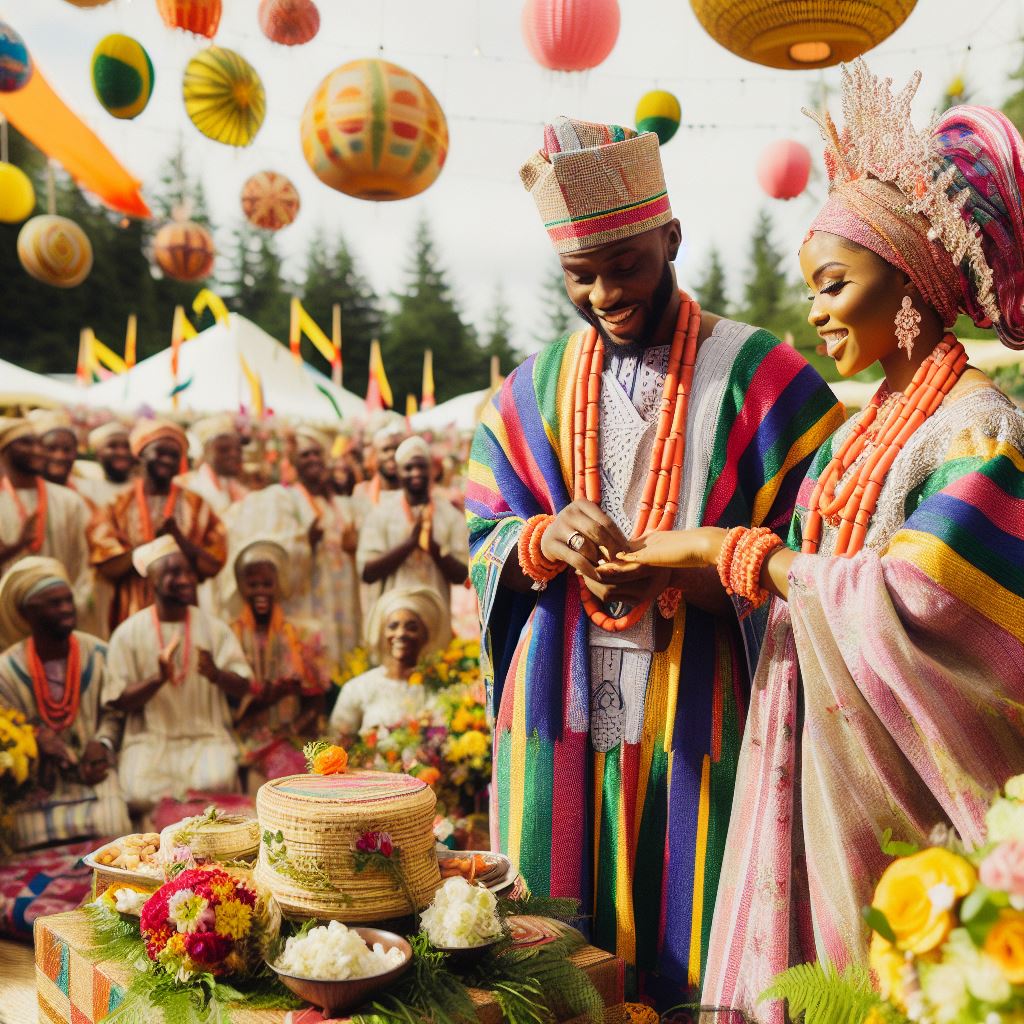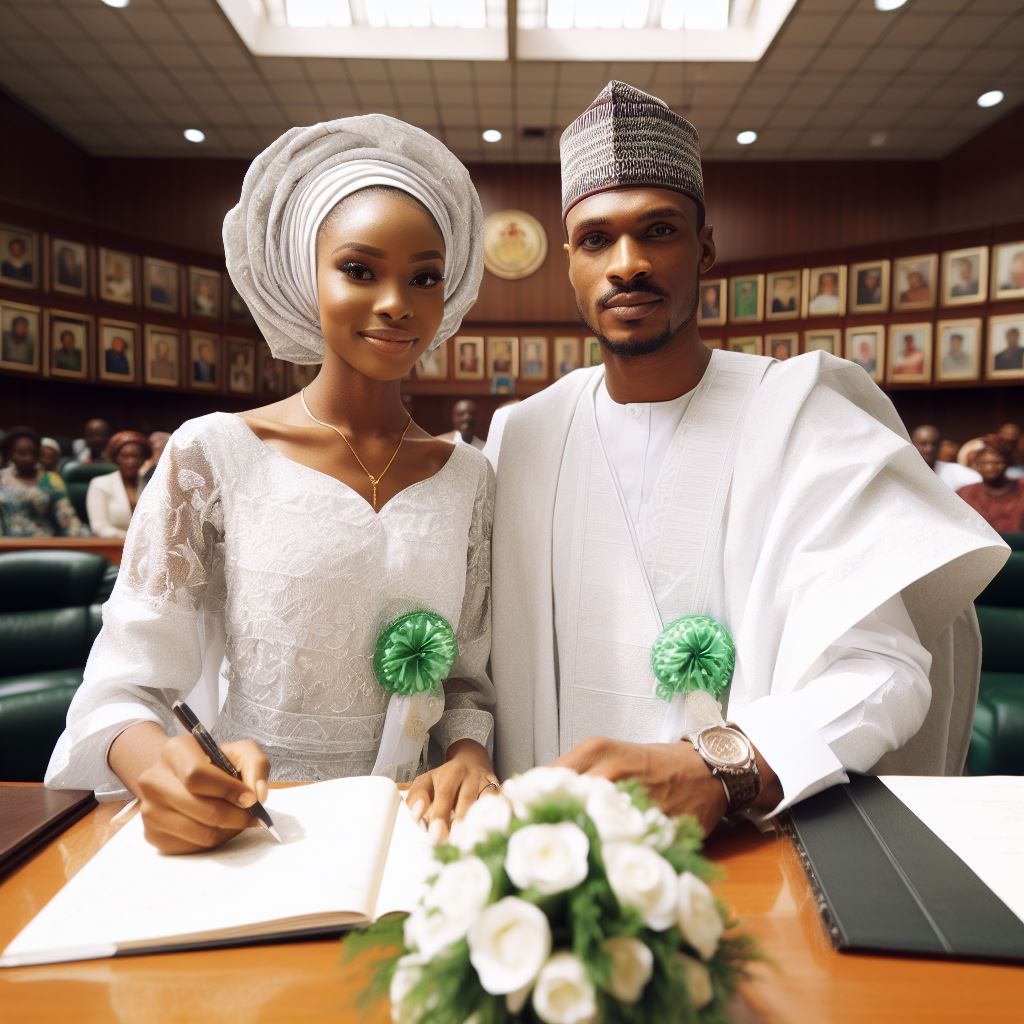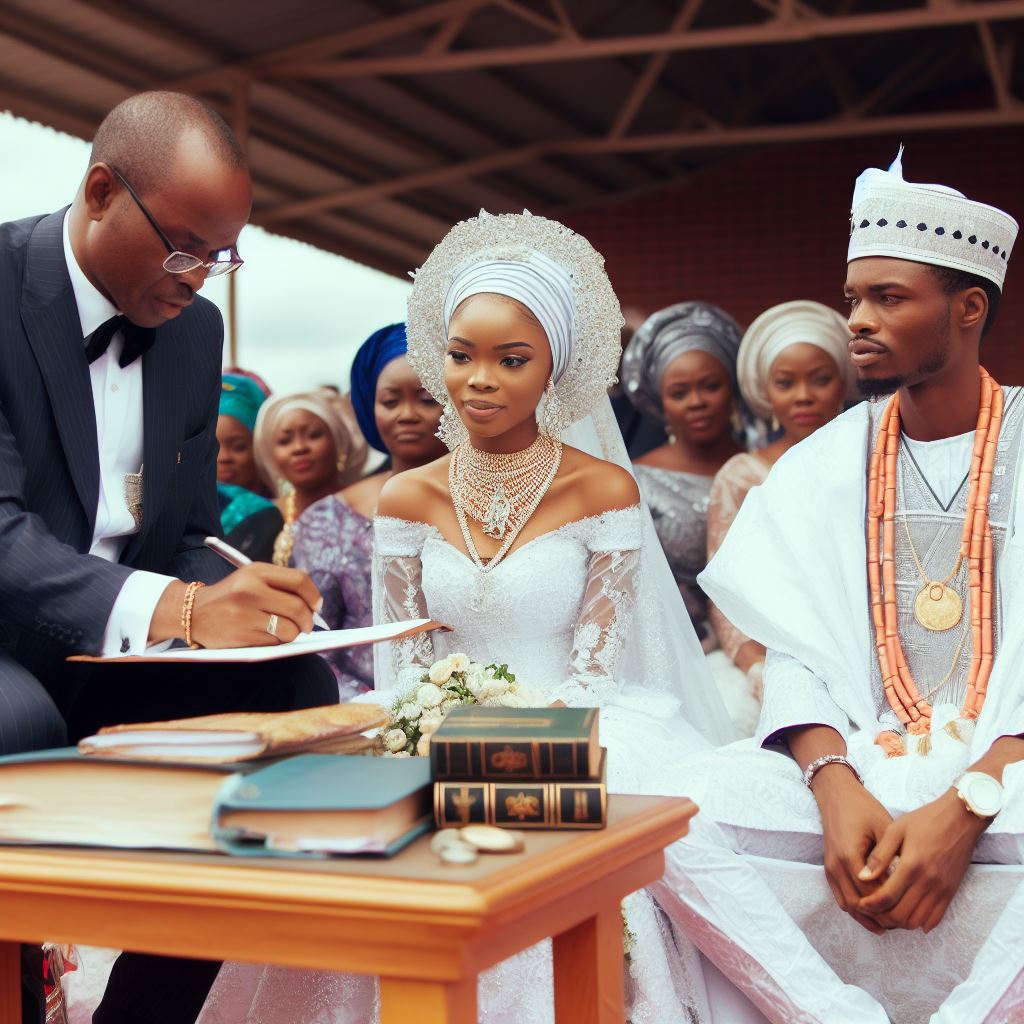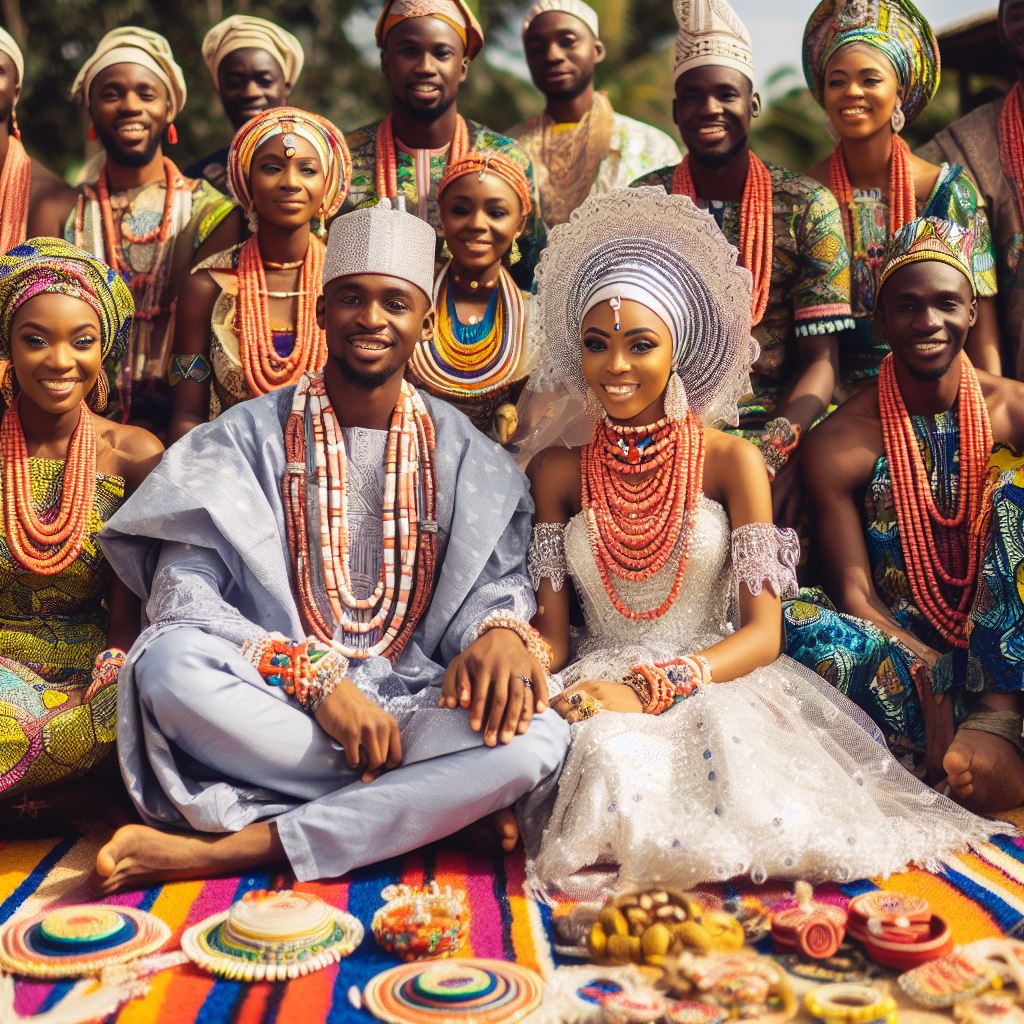Introduction
Intercultural marriages within the Nigerian legal framework, in which individuals from different cultural backgrounds unite in matrimony, have notably risen in prominence in recent times.
The diverse nature of the Nigerian society, with over 250 ethnic groups, has contributed to the prevalence of intercultural unions.
However, it is essential to understand the legal aspects that govern these marriages.
The Nigerian legal framework surrounding intercultural marriages plays a crucial role in defining the rights and responsibilities of individuals involved, as well as protecting their interests.
Marriage in Nigeria is primarily governed by marriage laws based on religious beliefs or customary practices.
For intercultural couples in Nigeria, the legal framework must consider various factors, such as religious differences, cultural practices, and legal recognition of these marriages.
One critical aspect to explore is the jurisdiction that governs intercultural marriages and how it may vary based on the partners’ religious or traditional backgrounds.
Furthermore, legal provisions regarding marriage registration, rights to inheritance, and divorce procedures for intercultural couples need to be examined.
By understanding these legal aspects, intercultural couples can navigate potential challenges and ensure their rights are protected within the Nigerian legal system.
Overall, this blog post will explore the nuances of the Nigerian legal framework surrounding intercultural marriages, shedding light on the rights, responsibilities, and challenges faced by individuals in these unions.
By doing so, we aim to provide valuable insights into the legal landscape surrounding intercultural marriages in Nigeria.
Overview of Intercultural Marriages in Nigeria
A. Definition of intercultural marriages
- Intercultural marriages refer to unions between individuals from different cultural backgrounds.
- These marriages involve partners who come from diverse ethnic, religious, or national origins.
B. Statistics on intercultural marriages in Nigeria
- Nigeria has witnessed a notable increase in intercultural marriages in recent years.
- A survey conducted in 2020 revealed that approximately 20% of marriages in Nigeria are intercultural.
- This percentage has been steadily rising over the past decade.
C. Factors contributing to the increase in intercultural marriages
- Globalization: The interconnectedness of societies through technology and travel has promoted cultural exchange.
- Education: Increased access to education has facilitated social integration and understanding between different cultures.
- Urbanization: The growth of cities has created diverse communities, fostering opportunities for intercultural relationships.
- Interactions in the workplace: Many intercultural marriages result from professional connections and interactions.
- Social acceptance: Society’s increasing acceptance of intercultural relationships encourages more individuals to pursue them.
- Love and compatibility: Ultimately, love and compatibility transcend cultural barriers, leading people to choose partners from different backgrounds.
The rise in intercultural marriages in Nigeria reflects the country’s evolving social landscape and its embrace of cultural diversity.
These unions offer a unique blend of traditions, values, and perspectives, enriching the fabric of Nigerian society.
Read: Marriage Act Nigeria: Addressing Common Misconceptions
Nigerian Legal Framework on Intercultural Marriages
A. Overview of Nigerian marriage laws
Nigeria has a comprehensive legal framework that governs marriages throughout the country.
Intercultural marriages in Nigeria benefit from the Nigerian legal framework, which promotes equality and protects the rights of both parties.
The overview of Nigerian marriage laws reveals the comprehensive nature of the legal framework, which ensures that marriages take place in a fair and transparent manner.
B. Legal requirements for intercultural marriages
- Proof of consent and capacity: Both parties must willingly give their consent to enter into the marriage.
- Age requirements and parental consent: The parties must meet the minimum age requirement, and if underage, parental consent is required.
- Religious considerations: The religious beliefs of the couple must be respected and taken into account.
- Registration of marriage: It is mandatory to register the marriage with the appropriate government agency.
The legal requirements for intercultural marriages focus on essential aspects such as consent, age, religion, and registration.
These requirements aim to ensure that both parties enter into the marriage willingly, fulfill the necessary age criteria, respect their religious beliefs, and duly register their union with the government.
C. Legal implications for intercultural marriages in Nigeria
- Property rights and inheritance: The legal framework ensures that both parties have equal rights to property and inheritance.
- Custody and guardianship of children: The best interests of the child are considered, irrespective of the cultural backgrounds of the parents.
- Divorce and its legal aspects: The legal framework provides a process for divorce, taking into account the rights and obligations of both parties.
- Recognition of foreign intercultural marriages in Nigeria: Marriages conducted outside Nigeria are recognized as long as they comply with legal requirements.
The legal implications of intercultural marriages in Nigeria cover various aspects, including property rights and inheritance.
The legal framework ensures that both spouses have equal rights to property and inheritance, regardless of their cultural backgrounds.
Custody and guardianship of children are also carefully considered, with the best interests of the child being the paramount consideration.
The legal framework prioritizes the welfare and well-being of the children, irrespective of their parents’ cultural backgrounds.
In terms of divorce, the legal framework provides a clear process for dissolution of marriage, taking into account the rights and obligations of both parties.
This ensures a fair and equitable resolution of disputes, maintaining the principles of justice and fairness.
Foreign intercultural marriages are recognized in Nigeria, provided they comply with the legal requirements of the country where the marriage took place.
This recognition ensures that couples who are married outside Nigeria can enjoy the same rights and protections as those married within the country.
Essentially, the Nigerian legal framework on intercultural marriages promotes fairness, equality, and respect for cultural diversity.
It provides a solid foundation for successful intercultural unions, offering legal protection and support to couples and their families.
Read: Intimacy in Marriage: A Guide for Nigerian Couples
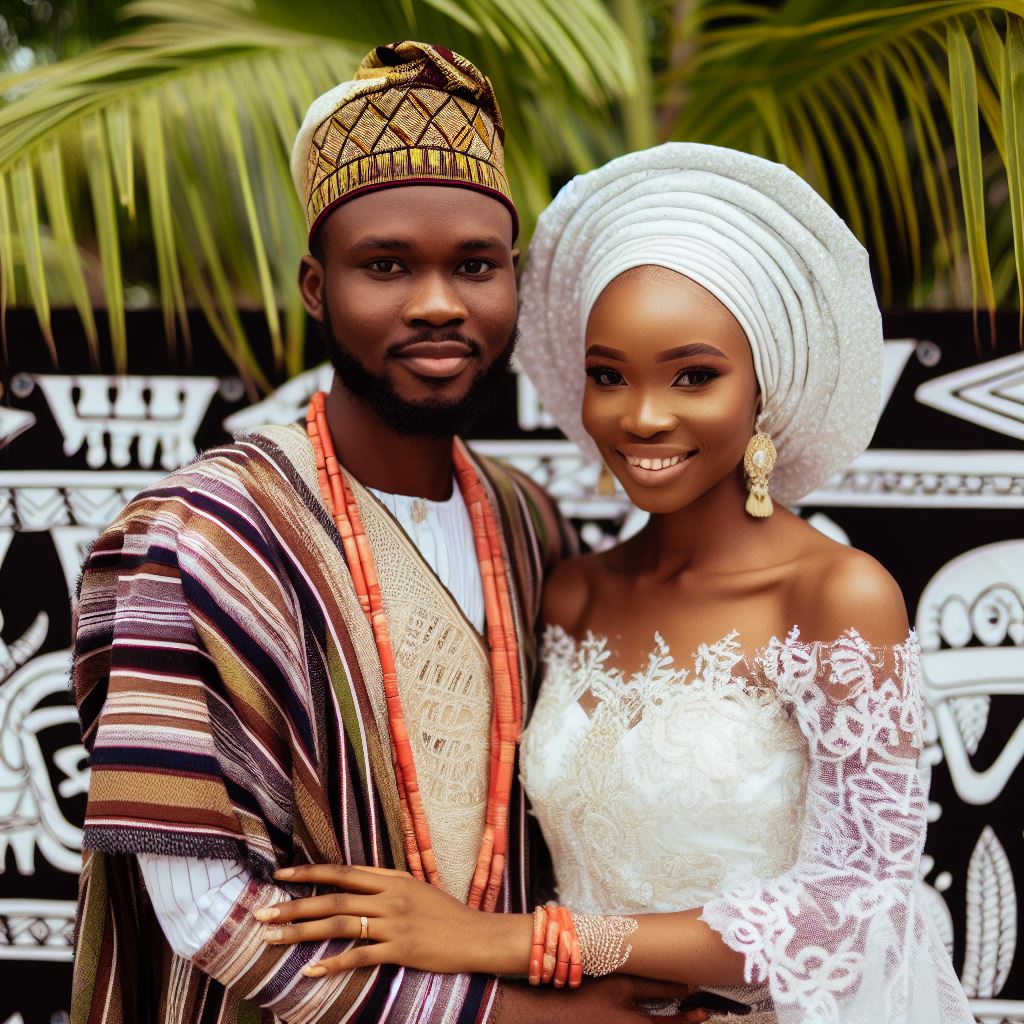
Challenges Faced by Intercultural Couples
A. Cultural differences and conflicts
Couples from different cultures often face challenges due to varying values, customs, and traditions within their relationship.
These differences can lead to misunderstandings, conflicts, and even clashes in decision making and daily life.
Respecting each other’s cultural backgrounds and finding common ground can help in overcoming these challenges.
B. Social stigmas and discrimination
Intercultural couples may encounter social stigmas and discrimination from society.
Their relationship can be subjected to stereotypes, prejudice, and even racism.
Overcoming these challenges requires resilience, support from loved ones, and educating society about cultural diversity and acceptance.
C. Family and societal pressures
Intercultural couples often face pressure from their families and society to follow traditional norms and marry within their own culture.
This pressure can cause tension and strain on the relationship, leading to conflicts between partners and their families.
Open communication, mutual understanding, and compromise can help in navigating these societal and familial pressures.
D. Language and communication barriers
Language differences can create challenges in communication for intercultural couples.
Not being fluent in each other’s language can lead to misunderstandings and difficulty in expressing emotions and thoughts.
Learning each other’s language, using translation tools, and practicing effective communication skills can help in overcoming these barriers.
In general, intercultural marriages come with their own set of challenges that couples need to address and overcome.
Cultural differences, social stigmas, family pressures, and language barriers can all pose significant hurdles.
However, with understanding, respect, and effective communication, intercultural couples have the ability to thrive and build strong, lasting relationships.
The Nigerian legal framework plays a crucial role in protecting the rights of intercultural couples, ensuring their equal treatment and access to legal remedies if faced with discrimination.
By fostering a more inclusive and accepting society, intercultural marriages can enrich the Nigerian cultural landscape and strengthen social cohesion.
It is essential for individuals, communities, and the legal system to support and embrace intercultural marriages, celebrating diversity in love and unity.
Read: Nurturing Love & Understanding in the Nigerian Marriage
Explore Further: Tips for Honouring Your Spouse in Daily Nigerian Family Life
Benefits and Opportunities of Intercultural Marriages
Intercultural marriages, a beautiful tapestry of diversity, offer numerous benefits and opportunities, enriching the lives of couples and society alike.
A. Promotion of cultural exchange and understanding
- These marriages foster cross-cultural interactions, allowing partners to explore new traditions.
- Shared experiences promote empathy, breaking down cultural barriers and stereotypes.
- Couples often learn each other’s languages, deepening their connection and promoting linguistic diversity.
B. Enhancing diversity and tolerance
- Children from intercultural unions grow up with a rich blend of customs.
- Exposure to varied viewpoints cultivates open-mindedness and tolerance in the family.
- The broader family network gains a more cosmopolitan perspective.
C. Embracing and appreciating different traditions
- Celebrating diverse holidays and traditions adds vibrancy to family life.
- Partners may find themselves drawn to aspects of their spouse’s culture, broadening their horizons.
- This mutual appreciation strengthens the marital bond.
D. Creating a harmonious and inclusive society
- Intercultural marriages set an example for societal harmony and acceptance.
- They challenge prejudices and contribute to a more inclusive and egalitarian world.
- Children of these unions grow up as cultural bridges, connecting different communities.
Essentially, intercultural marriages are a bridge between worlds.
They bring forth a profound understanding of diverse traditions, fostering appreciation and tolerance.
By doing so, they contribute to a more harmonious and inclusive society, where unity in diversity is celebrated.
Read: Foreign Marriages in Nigeria: Recognition and Legal Implications
Steps to Navigate Intercultural Marriages within the Nigerian Legal Framework
Intercultural marriages in Nigeria can be incredibly enriching, but they also come with unique challenges.
To ensure a harmonious union within the Nigerian legal framework, consider these essential steps:
A. Seek Legal Advice and Guidance
- Consult with a legal expert who specializes in family law and intercultural marriages.
- Understand the legal requirements for your union, such as marriage certificates and immigration documentation.
- Ensure your marriage complies with Nigerian marriage laws, as they can vary among different states.
B. Educate Yourself About Cultural Differences
- Delve into the cultural norms and traditions of both partners’ backgrounds.
- Learn about the intricacies of dowry, naming ceremonies, and other cultural practices.
- Be aware of how cultural differences might affect your marriage dynamics.
C. Communicate Openly and Honestly with Your Partner
- Foster an environment of open and honest communication about cultural expectations and differences.
- Discuss how you’ll handle family interactions, religious practices, and traditions.
- Establish a strong foundation of trust and understanding in your relationship.
D. Develop Mutual Respect and Understanding
- Embrace each other’s cultural heritage and traditions.
- Show respect for each other’s customs, even if they differ from your own.
- Work together to find compromises that respect both cultural backgrounds.
E. Create a Support System for Challenges That May Arise
- Build a network of friends, family, and support groups who understand and appreciate your unique situation.
- Seek guidance from other couples who have navigated intercultural marriages in Nigeria.
- Be prepared for potential challenges and have strategies in place for handling them.
Incorporating these steps into your intercultural marriage within the Nigerian legal framework can help you and your partner overcome obstacles and build a strong, thriving relationship.
Remember that while the journey may have its difficulties, the rewards of a harmonious and loving intercultural marriage are well worth the effort.
Conclusion
Intercultural marriages can be a beautiful union of different cultures and traditions, but they also come with their own set of challenges.
In Nigeria, where cultural diversity is celebrated, it is important for couples to understand the legal framework surrounding intercultural marriages.
Couples can ensure Nigerian law recognizes and protects their marriage by understanding legal requirements.
Moreover, understanding the legal framework allows couples to navigate potential issues such as inheritance, child custody, and property rights that may arise in intercultural marriages.
It is crucial for couples to appreciate the importance of the legal framework in order to safeguard their rights and interests.
Furthermore, embracing diversity and exploring intercultural relationships can bring about personal growth, increased understanding, and a broader perspective in society.
Intercultural marriages can contribute to the overall social cohesion and unity of Nigeria.
In a nutshell, intercultural marriages are an enriching experience that can bring people from different backgrounds together.
By understanding and abiding by the Nigerian legal framework, couples can build a strong foundation for their relationship and contribute to a diverse and inclusive society.

